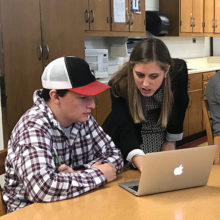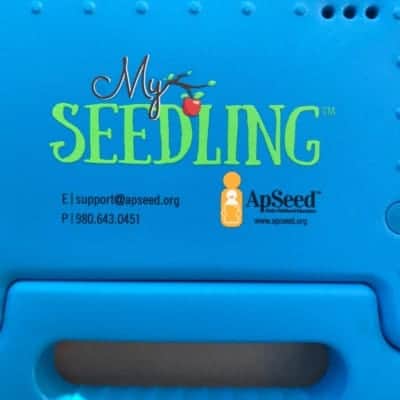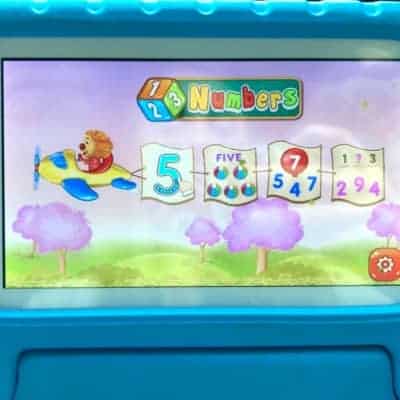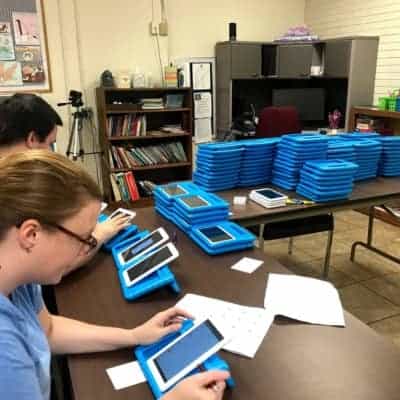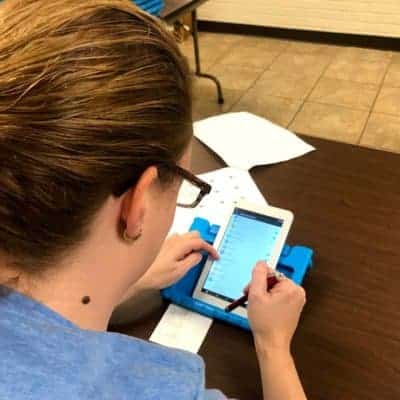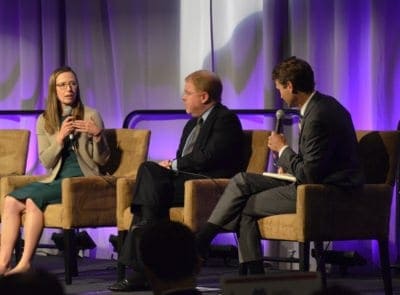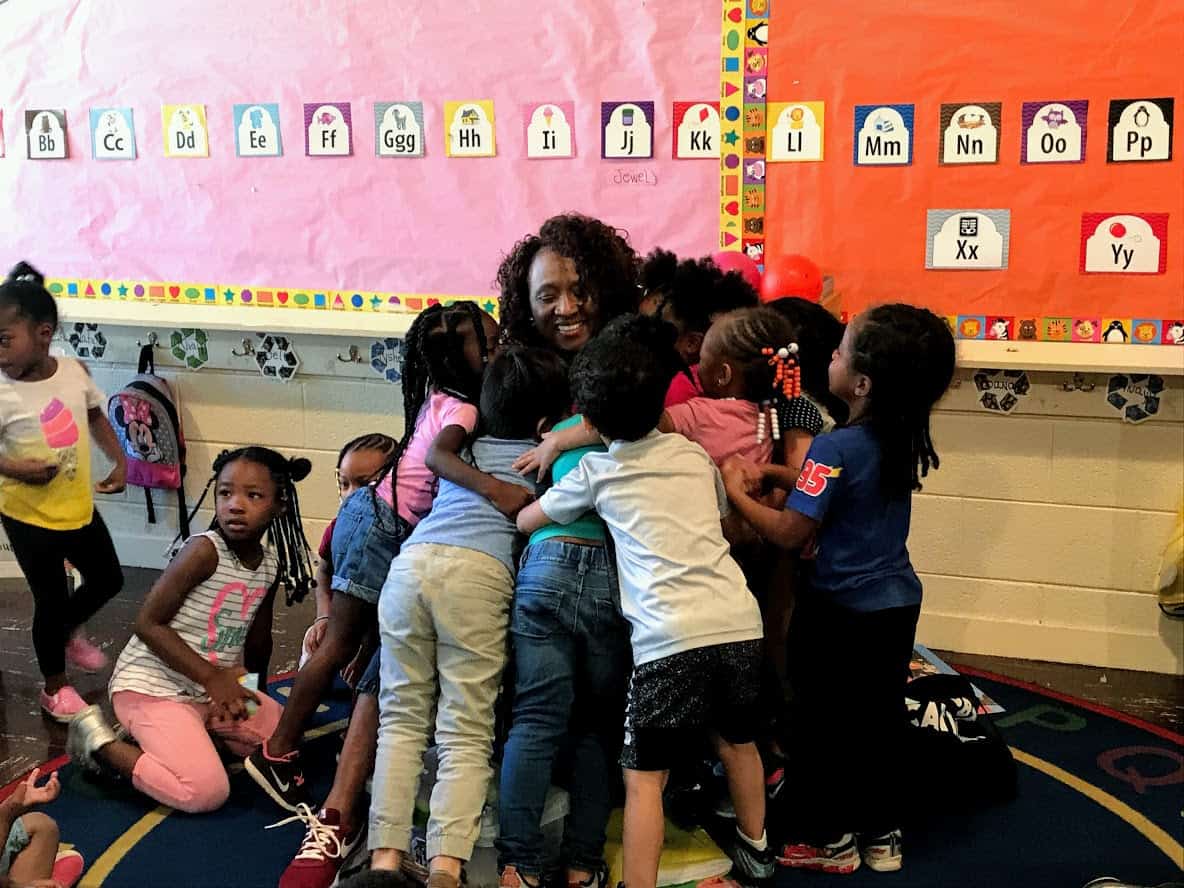

Greg Alcorn has a dream: to get one of ApSeed’s seedlings into the hands of every child ages 0 to 4 in North Carolina, in the United States, and in the world. While he laughs a little as he professes this dream, anyone who talks to him about ApSeed will see he is serious.
Alcorn and his wife Missie founded the education nonprofit ApSeed two years ago with the mission to “significantly increase literacy among socio-economically disadvantaged children before entering kindergarten.”
The nonprofit provides free e-readers for a three-year period to socio-economically disadvantaged children ages 0 to 4 in two North Carolina counties, Rowan and Davie. These e-readers, called seedlings, come loaded with developmentally-appropriate apps designed to help children start school kindergarten-ready.
Alcorn has three “big hairy audacious goals,” or BHAGs, as he calls them:
-
Three-year goal: increase the kindergarten assessment pass rate in Rowan and Davie counties from 70 percent to 90 percent.
-
Seven-year goal: increase 3rd grade reading pass rate in Rowan and Davie counties from 22 percent to 50 percent.
-
Ten-year goal: participating district schools receive an “A” rating.
Alcorn resigned from the State Board of Education earlier this month, citing in his resignation letter to Governor Cooper his desire to spend more time working on ApSeed.
In a recent interview, Alcorn said, “My value at the State Board level I think had run its course. It’s the opposite with ApSeed. It’s calling on more effort and attention…[At ApSeed] I can have a more significant impact. With all the legal and political challenges in Raleigh, that’s not my style.”
Alcorn landed on the seedling after learning about Hart and Risley’s research on the 30 million word gap, which found that the average child in a socio-economically disadvantaged family hears 30 million fewer words by age three. After seeing his colleague Erik Lipscomb’s children with a Kindle fire, Alcorn decided he wanted all children, especially disadvantaged children, to have what he calls a pre-reader.
“It’s turned out that this isn’t a reader,” Alcorn said. “It’s a pre-reader. It doesn’t teach the child how to read. It teaches the child how to learn to read.”
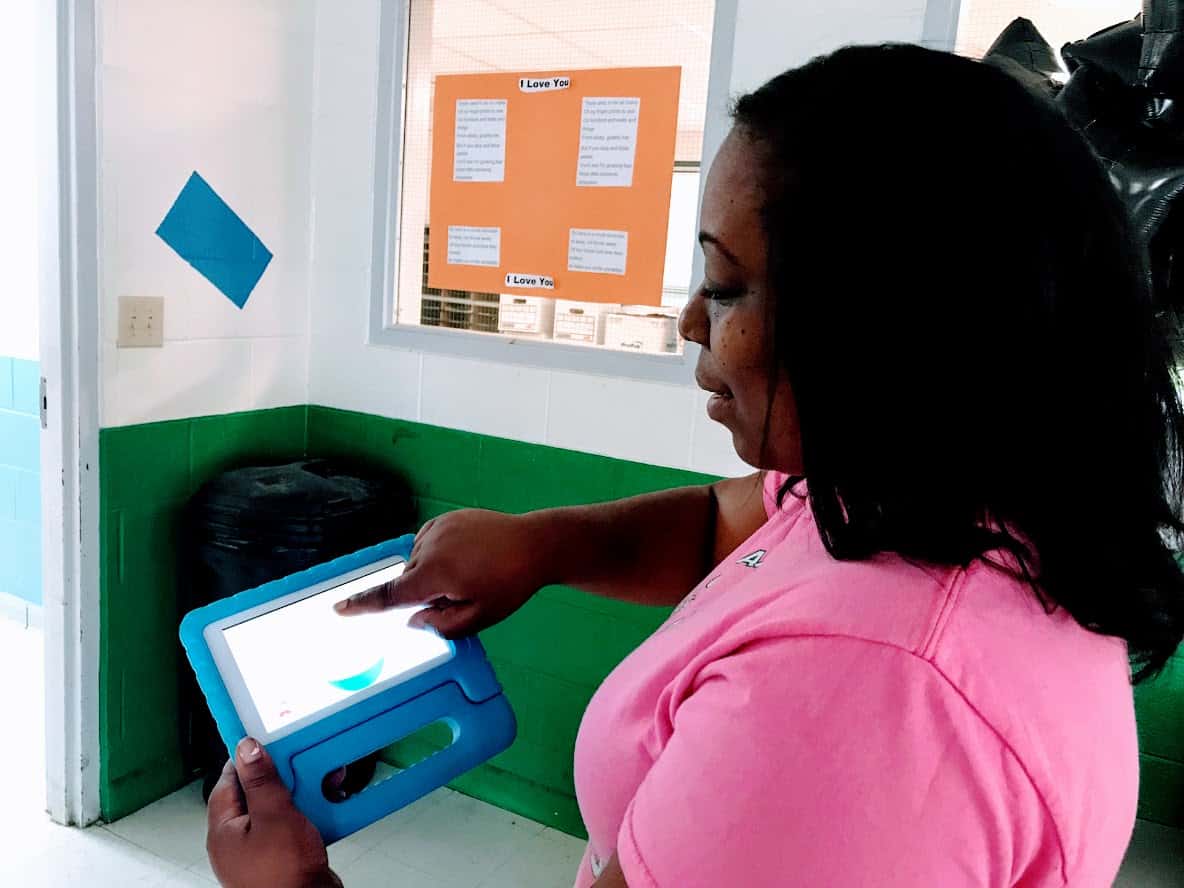

Lipscomb and Alcorn originally tried to partner with Apple and use iPads, but as Alcorn said, “We wanted to use the iPad, but the iPad was a Ferrari and we really just wanted a bicycle.” They experimented with Kindles as well but did not find exactly what they needed, so they decided to build their own device.
The device they came up with, the seedling, fits their needs with few bells and whistles. Lipscomb worked with their technology team to develop a durable device with engaging content. The seedling comes pre-loaded with apps so it does not have an internet connection, meaning it can only be used for one purpose.
According to Lipscomb, his children served as ApSeed’s research and development office. “I knew if [my kids] put it down after three to four minutes, we weren’t using it,” Lipscomb said. “If I had to tear it out of their hands, then I would say to Greg, ‘I think we got something.'”
Lipscomb also tested the seedling’s durability with his kids. “I had them throw these around the house to test them.”
ApSeed has partnered with Rowan Vocational Opportunities, a nonprofit that “provides opportunity and training for adults with disabilities to develop work habits and skills leading to employment.” Rowan Vocational’s clients who are interested in technology install the apps on the seedlings, set up a user profile, and put the seedlings in their protective cases. Together, they are setting up about 140 seedlings a day.
Both Alcorn and Lipscomb talk about their goal of achieving market saturation — in other words, giving a seedling to every child ages 0 to 4 in Rowan and Davie County. While they are not there yet, Alcorn stated their goal is to distribute 6,000 seedlings by the end of the year.
To achieve market saturation, Alcorn and his team have partnered with several local organizations to help distribute the seedlings, including Head Start and Early Head Start. At Head Starts in East Spencer and Salisbury, every child who attends receives a seedling to take home with them. They have also partnered with Miriam Basso, an ESL (English as a Second Language) parent liaison for Rowan-Salisbury Schools.
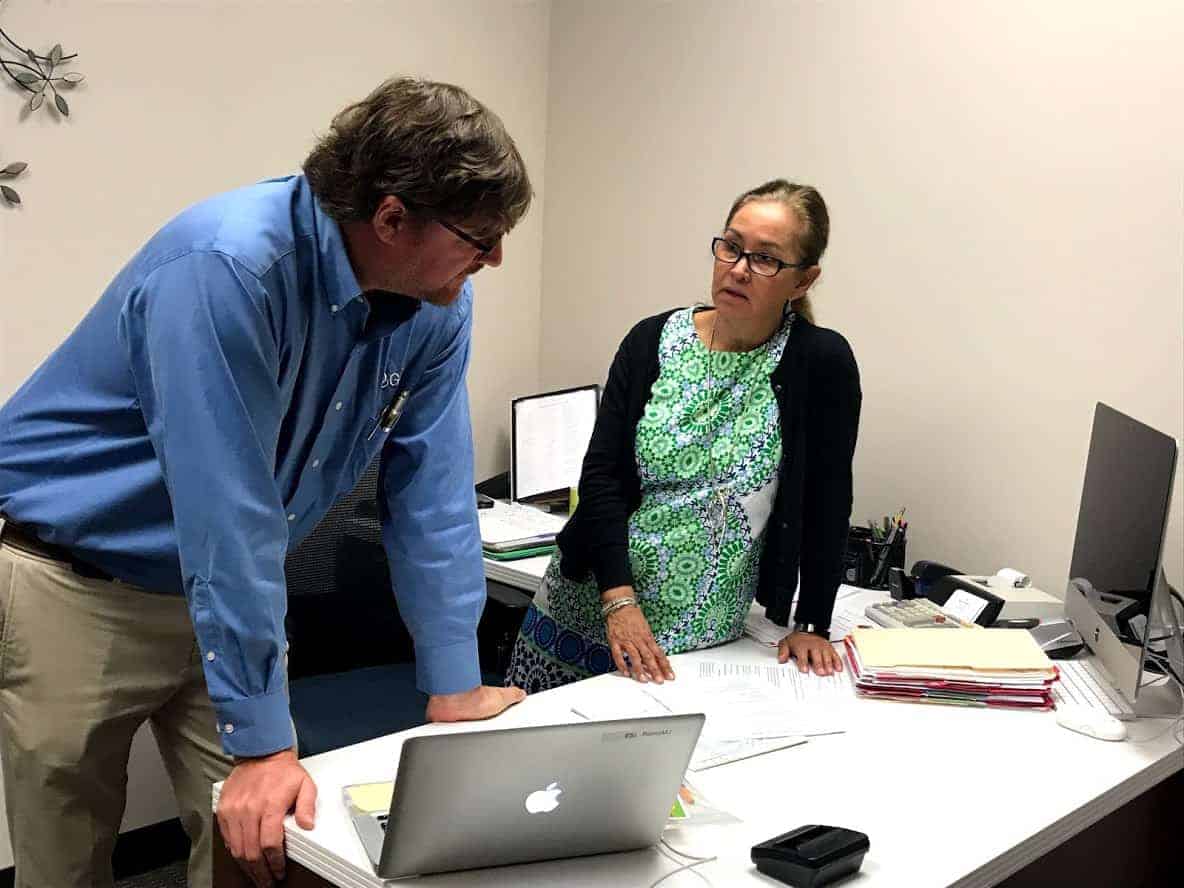

While it’s too early to see results from the seedlings, Alcorn, Lipscomb, and their community partners believe the seedlings are already having an impact.
Shara Streater-Dearmon, Director of East Spencer Head Start, said the seedlings have increased parent-child interactions.
“We let them know at parent orientation that they’re receiving a tablet as an extension of their education, and we encourage those interactions so that they’re not just giving it to a child to play. We encourage them to sit down [and] play with their child,” Streater-Dearmon said.
She added that one of the most popular apps, Tiggly Chef, reinforces the health and nutrition content they are teaching their students by exposing the children to different types of foods.
Natasha Sherald, a pre-K teacher at East Spencer Head Start, said the seedlings have helped her students with letter identification and the pronunciation of the sounds. She said she has seen great progress in her students, which she attributes to the seedlings as well as her teaching.
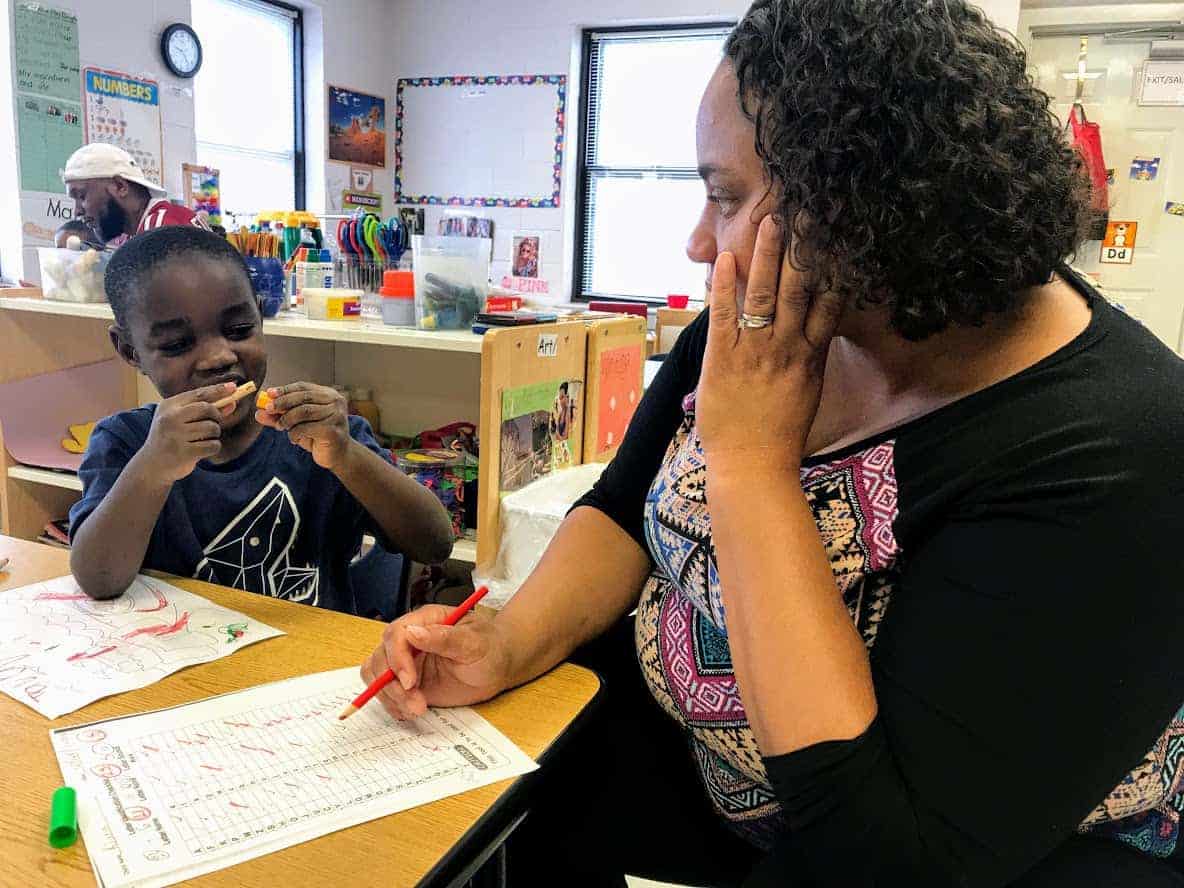

Ginger Jenkins, director of Price Head Start, echoed Sherald and Streater-Dearmon: “I think it’s been a very good learning tool for preschool children. It gives them more time learning letters, numbers, and cognitive skills.”
Basso sees great value in the seedlings helping her ESL students learn English before they get to kindergarten.
“This is awesome because they are also learning sounds and hearing songs,” said Basso, “so they are learning English at the same time that they’re just learning the letters, the colors, the numbers.”
In addition, teachers have noted an improvement in students’ social interactions, which they attribute to the shared experience of all having the same device and same games.
“It’s not just a literary tool,” Jenkins said, “because it’s teaching the children social skills.”
To Lipscomb, this has been one of the most surprising impacts of ApSeed: “They all have something in common, and we just — we never in a million years would have guessed that it would have a social impact or a behavioral impact.”
To learn more about ApSeed, watch the video of Alcorn’s presentation to the State Board of Education.
See the State Board presentation here.
